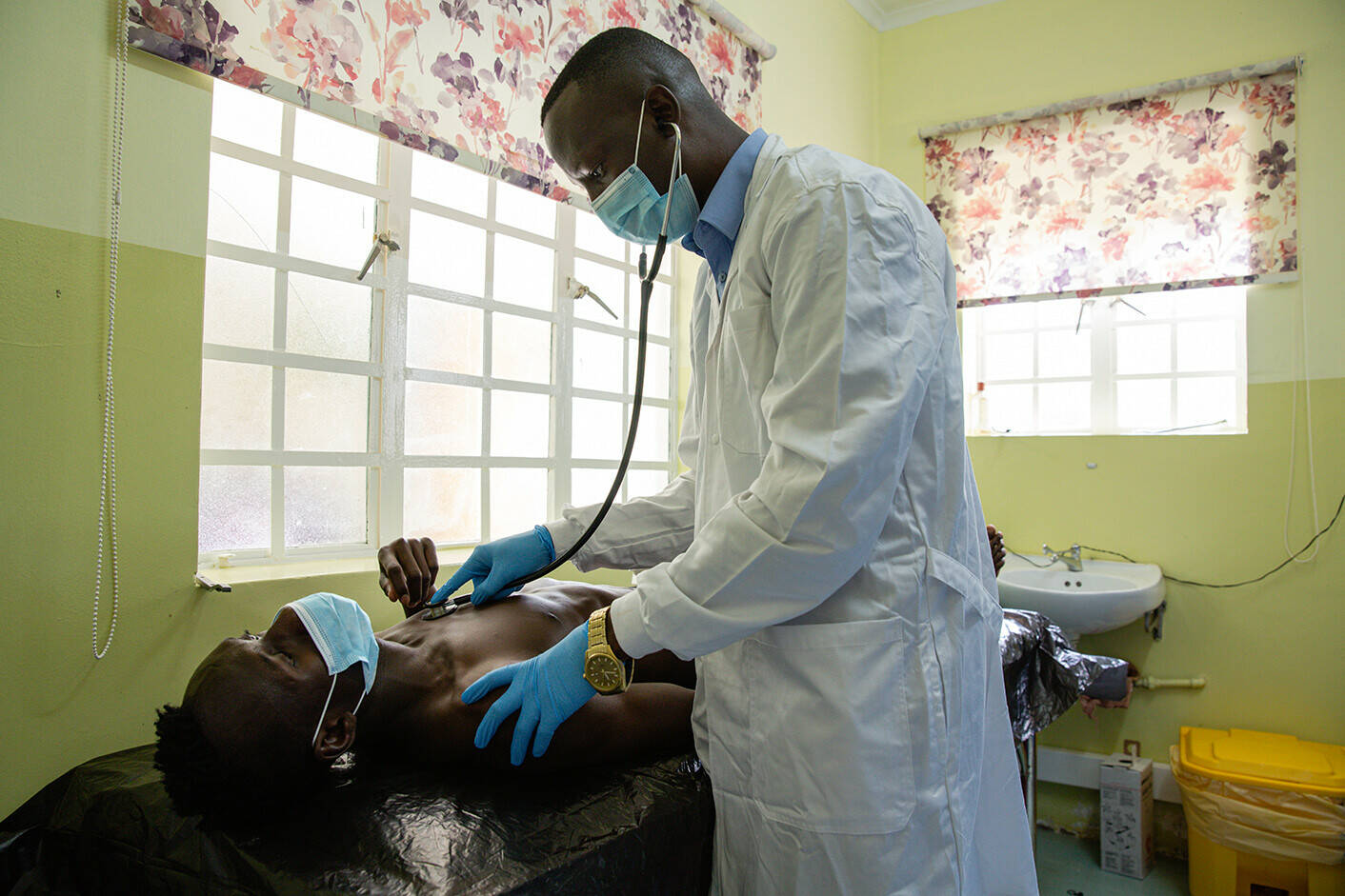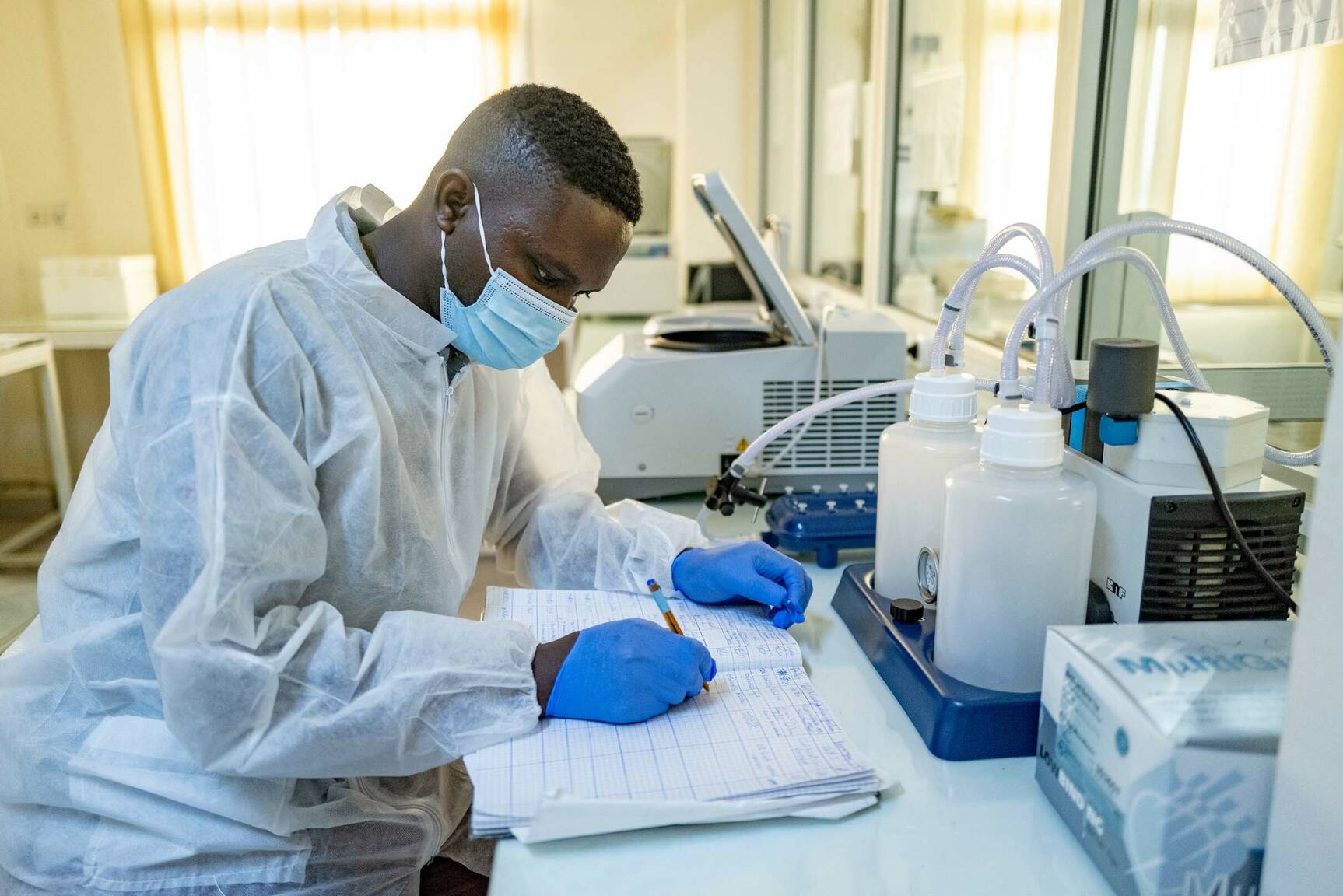The AMBITION-cm trial conclusively demonstrated that, as well as being as effective as the standard course of drugs, this new treatment approach also had fewer side effects and was preferred by healthcare providers. An economic analysis suggested it is likely to be highly cost-effective.
The results led WHO to release a rapid update of its treatment guidelines for cryptococcal meningitis. In addition, the AMBITION-cm team’s paper reporting its results received a European Hector Research Award in HIV in 2023, which recognises the best paper published in HIV clinical research in the past year.
By focusing on rapid communication of results, the project ensured that WHO guidance was released within a month and patients received the new treatment in routine care within 3 months – remarkably quickly by historical standards. The project therefore also holds important lessons for how research can be linked to policymaking to ensure that patients rapidly benefit from advances in knowledge.

scroll down
A further major advance in meningitis management in patients with HIV has come from the EDCTP-funded DREAMM study. This innovative implementation-focused study evaluated the introduction of new approaches for diagnosis and management of patients with HIV and suspected infections of the central nervous system (CNS), within existing health systems in three African countries – Cameroon, Malawi and Tanzania.
Across the sites, the DREAMM approach, based on use of new diagnostics and revised care pathways, greatly improved health outcomes. Overall, it was associated with a halving of mortality at 2 weeks, from 49% to 24%.
The project has therefore demonstrated the feasibility of introducing this new approach to diagnosis and management, which had a dramatic impact on outcomes for an infection that is the leading cause of death of people with HIV infections. The findings strongly argue for its wider implementation elsewhere in sub-Saharan Africa.
Meningitis caused by infection with Cryptococcus, a fungal pathogen, is the second-most common cause of death for people with HIV infections. Most such deaths occur in sub-Saharan Africa.
Until recently, the standard treatment for cryptococcal brain infections was a week-long course of two powerful drugs, which required constant monitoring of patients – a challenge in many resource-poor settings.
Through a large study involving 800 patients in five African countries, the AMBITION-cm trial, funded by EDCTP and other European partners, showed that a simpler treatment was just as effective. This treatment was based on a revised formulation of one of the two drugs, amphotericin B. Packaged in a liposome, amphotericin B can be delivered through a single high-dose injection. standards. The project therefore also holds important lessons for how research can be linked to policymaking to ensure that patients rapidly benefit from advances in knowledge.
Results from the AMBITION-cm trial have led to an updating of WHO guidelines for treatment of fungal brain infections in people with HIV, and the paper reporting these findings has been awarded a prestigious international award.

Detecting and treating fungal brain infections